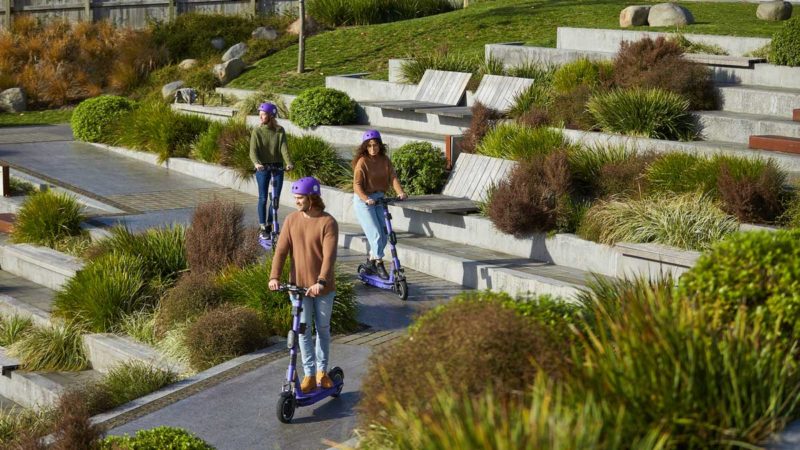Leading Asia Pacific micromobility company Beam Mobility has announced this week the launch of the Micromobility Research Partnership which will bring together academics from universities across Australia and New Zealand to study the future of sustainable transport and micromobility.
The Singapore headquartered Beam Mobility, which operates hireable e-scooters in major urban centres throughout the Asia Pacific region – including Australian operations in Brisbane, Adelaide, Canberra, Hobart, Launceston, and Perth – is looking to expand its efforts to revolutionise micromobility through the launch of its Micromobility Research Partnership (MRP).
The Research Partnership is the brainchild of the partnership between Professor Mark Stevenson of the University of Melbourne, Professor Hussein Dia from Swinburne University of Technology, along with the Transport Research Centre at the University of Auckland and Strategic Transport Sustainability and Impact Consultant Ferdinand Balfoort.
Designed to conduct research on sustainable transport and micromobility, the Partnership is seeking to identify and promote priority pathways to reduce global transport emissions.
Other research topics include identifying micromobility’s economic and social value to a city and what strategics can be employed to address transport poverty and promote social inclusion.
The partneship will also explore the environmental impact of micromobility in improving air quality and reducing transport emissions, as well as the current and potential future use of micromobility as a mode of transport, along with its impacts on car-use and car-ownership.
“Since our launch into Australia and New Zealand, Beam has always been committed to working with academics and researchers to examine the impacts of micromobility on the environment, cities and communities which we operate in,” said Tom Cooper, general manager of Beam Australia and New Zealand.
Cooper said Beam would contribute a variety of resources to the the Micromobility Research Partnership, including funding, aggregated data and other operational findings that might help provide greater understanding of micromobility in the region.
“Beam is committed to partnerships that better improve Australians and New Zealanders’ access to multi-modal transport, and we see this partnership as yet another step taken towards enabling shared mobility solutions for all in Australia, New Zealand as well as globally.
“This will encourage and enable increased research and study into micromobility in the region.”
Beam’s MRP will also be open to collaboration with research projects initiated by other academics and research institutions, as well as providing academic support and funding in so as to build a larger global coalition of sustainable transport experts.
On top of this, Beam is also looking to collaborate with its own riders as part of a quantitative and qualitative research project into the use and impacts of micromobility.
“The MRP will help provide the research community with access to much needed data to evaluate the sustainability and safety aspects of micromobility, particularly at a time when the industry is witnessing a rapid growth of technology and digitalization improvements leading to increasingly more durable and sustainable devices,” said Professor Hussein Dia.
“This initiative will create opportunities for collaboration between researchers across the globe which will help to share case study results, quantify benefits and remove barriers to wide scale adoption.
“The MRP will lead to development of meaningful research to provide evidence of the role of micromobility as a solution to reduce reliance on private vehicle travel particularly for first and last kilometre connections to transport hubs and for short commuting trips.”
So as to ensure the independence of the MRP’s research and publications, Beam will contribute funding to support its research and academic collaborations but will allow the MRP to develop and conduct its own research unhindered. Further, all academic research produced by the MRP will be independently peer-reviewed and published in leading international journals.
“We are confronted by significant global health challenges in the 21st century, which are prompting calls to rethink how we deliver key urban systems,” said Professor Mark Stevenson. “This is particularly the situation when dealing with the transport system.
“Our transport futures will rely on new initiatives such as micromobility and I welcome the MRP; a partnership that will support independent, robust research and thereby providing the important insights necessary for transport planning and policy decisions now and into the future.”
Joshua S. Hill is a Melbourne-based journalist who has been writing about climate change, clean technology, and electric vehicles for over 15 years. He has been reporting on electric vehicles and clean technologies for Renew Economy and The Driven since 2012. His preferred mode of transport is his feet.


